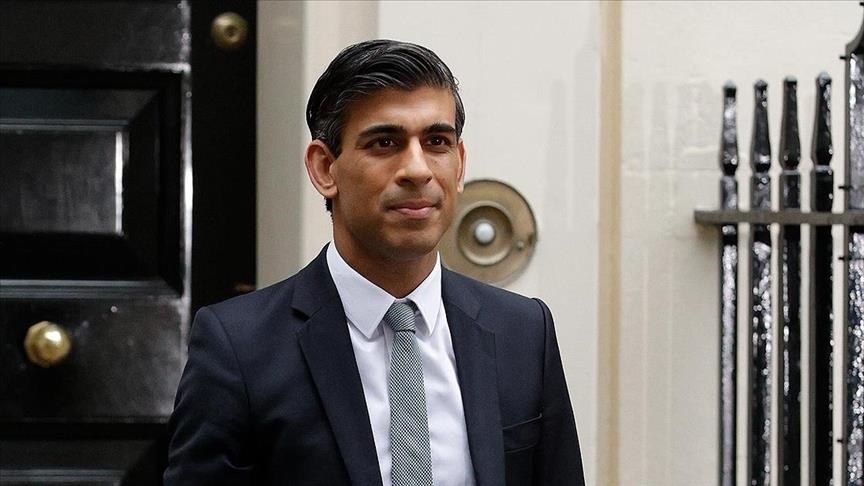Morteza Makki, in an interview with the website of the Strategic Council on Foreign Relations, further continued: After exiting the European Union, by signing free trade agreements with the most important poles of the world economy, they wanted to elevate Britain to the level of an important economic and political power at the international level, but the Ukraine crisis and its economic, political and security consequences have created serious challenges for Britain.
Referring to the current divergence or convergence of Britain with EU member states, Makki emphasized: Increasing inflation and the energy crisis have forced Britain to align and cooperate more with EU member countries. Because in this critical situation of the world economy, there is still no alternative for the important European business partners of Britain, and Britain should behave more flexible in relation to political, economic and commercial disputes with the important members of the European Union.
Commenting over the most important differences between Britain and Brussels, he referred to the process of trade relations of that country with the members of the European Union regarding determination of the level of tariffs and how Britain benefits from the European Union market.
The expert on Europe affairs further explained the challenges of Brexit on the way of the new prime minister, stating that the issue of the borders of Northern Ireland and the relationship between the two Irelands after Britain’s exit from the European Union have not yet been resolved and added: At the same time, Northern Ireland is faced with the crisis of forming a coalition government between the Unitarian Protestants and the Catholics of Northern Ireland; the two-Ireland borders have enjoyed relative political and economic stability for more than two decades since the Good Friday Agreement in 1998.
He continued: Now, if the Brexit agreement will be implemented and the borders of the two Irelands remain within the framework of the Good Friday Agreement, they will face with serious differences and contradictions. Because the Brexit agreement will practically face the freedom of movement of goods, capital, services and human resources between the two borders of Northern and Southern Ireland with obstacles.
According to the expert, if they define the borders of the two Irelands within the framework of Brexit and create an obstacle to the freedom of the two Irelands, the Good Friday Agreement will be damaged and the peace and stability between the Catholics and Protestants in Northern Ireland will be endangered.
Mackey also commented on the energy crisis in Britain, adding: Given that Britain has oil reserves in the Black Sea, it faces less restrictions in supplying its energy needs compared to other EU members. The challenge for Britain is more on supplying the gas it needs.
The expert emphasized that what is now an important challenge for the government of Mr. Rishi Sunak is the issue of increasing inflation due to the increase in the price of energy carriers and the increase in the cost of production in Britain; the same issue that forced Boris Johnson to resign and Liz Truss also resigned from her position after 45 days after failing to convince her conservative colleagues to implement economic programs.
The expert on Europe affairs explained: This challenge is also facing Rishi Sunak, and if he wants to reduce the costs of welfare and health services to deal with the increase in the deficit and the level of debts, he will definitely face more serious opposition in the British society.
He also said: In practice, both Britain and other European Union members have found a direct link between their foreign policy in how to deal with the Ukraine crisis and economic policies, especially in the field of energy.
Makki explained: Actually, the consequences of applying heavy economic sanctions against Russia have not only been aimed at this government, but also European governments have suffered serious damage from the application of such sanctions, and the increase in the price of energy carriers and inflation is one of them.
The expert on Europe affairs also said: The difference that now exists both within Britain and among members of the European Union on how to continue supporting Ukraine is the result of such crises that have arisen in European governments and the livelihoods of the people of Europe following the intensification of tensions in Ukraine.
He also explained about the domestic and foreign policy outlook of Britain during the new prime minister’s term and said: The reality is that when we look at the media close to the conservatives, there is little hope for the improvement of the British economic conditions after Rishi Sunak coming to power. This analysis is seriously discussed at the level of political and media circles in Britain, that the maximum success of Rishi Sunak in the nearly two years left to the parliamentary elections will be for the conservatives to have a dignified defeat, because the double-digit inflation that Britain is facing now and possibly will also create a deep recession in the markets, is not a challenge that Sunak can overcome in the two years left to the parliamentary elections and create more suitable economic conditions to maintain the social base of the conservatives.










0 Comments